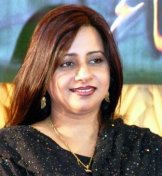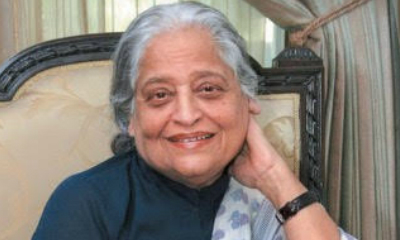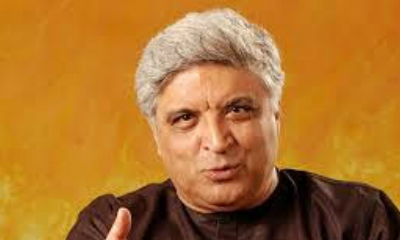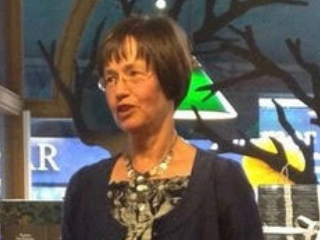
Poetry is the form of expression Urdu speakers love most. For people with English as a mother tongue this fact is not easy to absorb because our own culture’s attitude to poetry is so different. Most English speakers know a little poetry because they have been introduced to it at school but only a minority regularly read it for pleasure once their formal education is over. Poetry is thought of by many as an activity confined to a rarified elite, rather than something that ordinary people do or love. To find an example of English verse which is part of everyone’s culture, regardless of class or educational level, you would be driven to nursery rhymes or ritual-occasion songs like Auld Lang Syne.
Urdu poetry flourishes in a totally different context. There is nothing elite about a taste for poetry, and the awareness that it contributes something of value to one’s life is universal. Millions of Urdu speakers in India and Pakistan cannot read but they get to know poetry in other ways. From childhood they will have heard fragments quoted by their elders. Verses from famous poets are painted on the sides of buses. In a village where few are literate there may be one person who can recite long extracts of classical narrative poetry, and others will gather round to listen. In towns and cities thousands of people attend events where poetry is recited or sung. Everyone is familiar with the traditional imagery of Urdu poetry, for many of the popular tunes that blare out from radios have words which derive from – and sometimes are – classical poetry.
Major poets are honoured as no political leader would be, and their influence has been at times more powerful. They straddle boundaries, political, religious, social. The Partition that divided India and Pakistan so bitterly in 1947 has left political tensions that still cannot be resolved, but it is irrelevant in poetry. Urdu speakers on both sides of the border love the same poetry, venerate the same poets. Ghalib, by common consent one of the greatest Urdu poets, belongs to everyone – and it’s not just the classical greats to whom this applies. The two contemporary poets we will be considering in the translation workshop are examples: Zehra Nigah grew up in India, has lived in Pakistan since Partition, spends time each year in the UK, and is highly regarded by Urdu speakers in all three countries. So is Javed Akhtar – Indian, atheist, social critic, he has also been a screenwriter for Bollywood films watched by Urdu speakers everywhere. Both poets grew up steeped in the centuries-long traditions of Urdu poetry and have used them to reflect on a complex contemporary world.
Another striking thing about Urdu poetry, which it holds in common with many vibrant poetic cultures, is that it is primarily heard rather than read – and the verb for ‘to compose’ poetry is ‘kahna’ (to speak) rather than ‘lykhna’ (to write.) Some types of poetry are heard by millions who never see them written down. One example is the marsiya, a long narrative poem about the martyrdom of Husain, recited in the month of mourning at his death by Shia Muslims, though the power of great marsiyas poets like Anis is appreciated far beyond Shia – or even religious – circles. There are equally strong secular traditions. Poetry recitals – mushairas – were regular events in aristocratic Indian circles long before the intrusion of western cultural influences. As Ghalib composed each new poem, he would test it out at mushairas in the court of the last Mughal emperor, where his poetic status allowed him to get away with sharp social comments. Mushairas remain hugely popular today. Last year in Delhi I stood at the back of an open-air poetry event (no seats left) attended by probably a thousand people. These are highly participatory occasions. The audience calls out appreciation, joins in if phrases are repeated, may be moved to tears by an effective recital, and will come away remembering lines which they can quote later, just from having heard it once. At the Lahore Literary Festival last year one of the biggest draws was Zia Moyeddin, an actor and television presenter in both the UK and Pakistan but perhaps most celebrated for his poetry recitals. The hall was packed to capacity to hear him recite from the ghazals of Ghalib, and guards at the door battled to keep back the crush of young men increasingly angry that they weren’t being allowed in. The organisers were worried – would they have a riot on their hands? ‘Rejoice,’ I said. ‘Where else do young men almost cause a riot because they can’t get to hear poetry recited?’
A mushaira can also be an intimate get-together among friends, called perhaps to share the pleasure of a visiting poet but often with an invitation to those present to recite something of their own. I once asked a friend what had made him start composing poetry. He said he loved going to mushairas, and each time someone would say, “Come on Harris, it’s your turn.” It got so embarrassing that he had to either give up the pleasure of going, or start composing his own. To compose in the accepted forms is technically difficult but a startling number of people do consider themselves poets. If you study Urdu poetry as a new-comer you can overwhelmed by its complex rules and conventions, but Urdu speakers seem hardly aware of them, for they have absorbed them unconsciously through exposure.
If you’d like to know more, I look forward to seeing you at the workshop on 28th March. Meanwhile, to get a sense of this lively poetic culture, dip into You Tube videos of Urdu poets reciting – you won’t need to understand a word to see how it is being received.
Here are a couple of my favourites:
Munir Niazi : hamesha der kar deta hun main (I always do it too late)
Zehra Nigah : Daku (Bandit). You can fast forward through the introduction, but keep listening to the end for the audience reaction.
To see or hear more, including translations, check out the website Rekhta Rekhta is an old word for Urdu.




